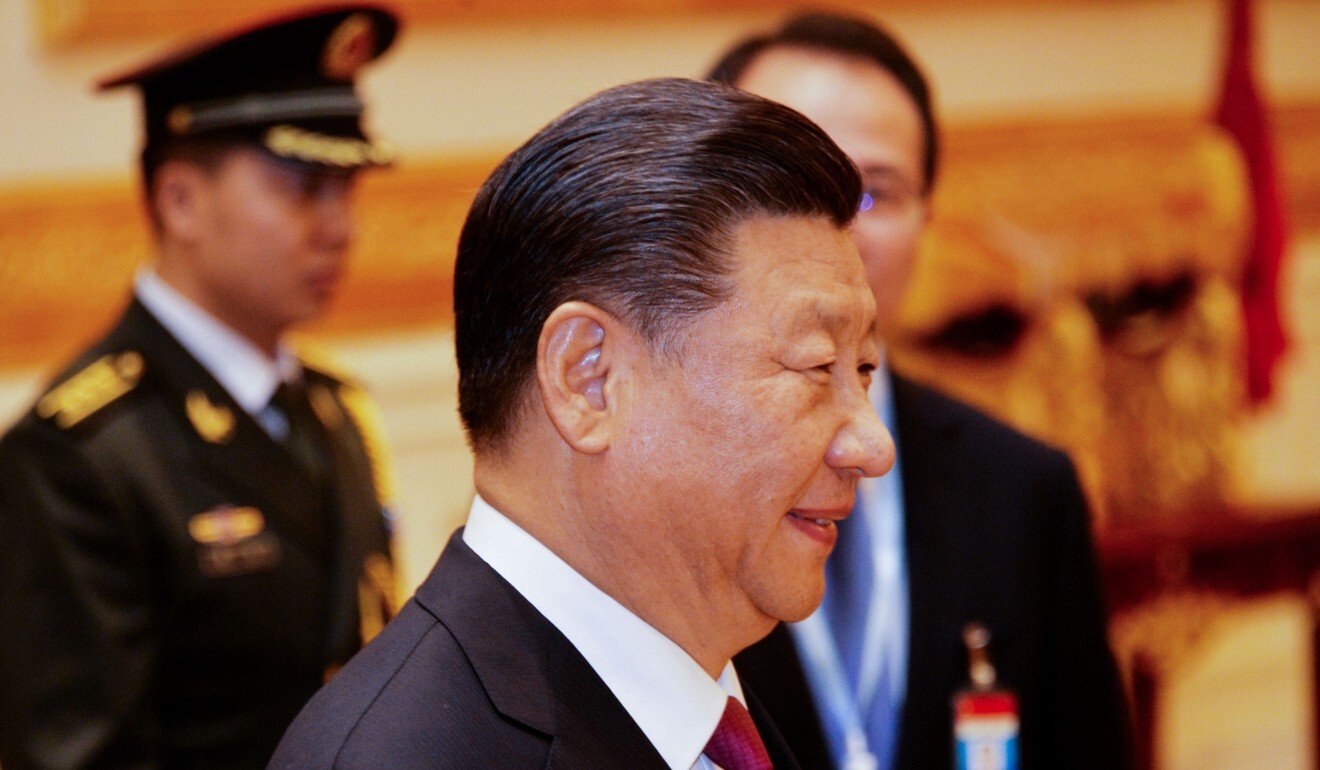
Xi’s call to Singapore: a subtle ‘reminder’ about the South China Sea?
- The Chinese leader congratulates Singapore’s Lee Hsien Loong on winning re-election, vows to ‘overcome distractions’ to safeguard regional stability
- To some experts it seemed a routine post-election call, to others a warning against siding with the United States
“Xi said that the bilateral relationship is standing at a new historical starting point, and that the two sides should hold celebrations in flexible and diversified forms, so as to deepen public support for their friendship,” reported Chinese state news agency Xinhua.
A missed chance in the South China Sea is back to haunt Asean
“China stands ready to work with Singapore to overcome distractions and jointly safeguard regional peace and stability.”
The Chinese embassy in Singapore said Xi spoke to Lee to congratulate him on winning the city state’s July 10 general election, in which the ruling People’s Action Party retained its decades-long grip on power.

Singapore is among the first countries to have a “fast track” travel agreement with China. It has a deal with six mainland provinces to facilitate the resumption of air travel for official and business purposes.
While some observers described the exchange as a routine post-election call by the Chinese leader, Dylan Loh, an assistant professor of international studies at Nanyang Technological University, said it was “inevitable” that people would speculate there was more to it. He cited the growing disagreements between the US and China over the pandemic and heightened maritime tensions.
The Global Times report quoted Chen as saying that “Singapore is dubbed a ‘strategist’ in the region, and as Lee has said publicly, Asean countries do not wish to take sides between China and the US, which basically lays the direction for Asean countries’ stance between the two superpowers”.

The Singapore leader has previously said the city state will not take sides and has tried to keep relations on an even keel with the two superpowers. He has highlighted Singapore’s strong security ties with the US, from whom it buys advanced equipment, and how US companies invest more in Singapore than firms from any other country. He has also stressed that China is Singapore’s biggest trading partner.
In his statement on Monday, US Secretary of State Mike Pompeo described China’s assertions as “completely unlawful”, offering Washington’s explicit support for a 2016 ruling of an international tribunal against China’s claims of historic rights in the disputed waters.
David Stilwell, the US assistant secretary of state for East Asia, said the next day to a forum there was “room” to apply sanctions on Chinese officials and companies that pursued “illegal” claims in the South China Sea.

Loh said the “distractions” referred to in the phone call were probably an allusion to the South China Sea and a “gentle reminder that Singapore-China relations are bigger” than what is happening in the disputed waterway.
“It’s probably also a subtle reminder to Singapore that should they not support China on these things, that China can create distractions as they did the last time for Singapore,” said Thompson.
Thompson said the latest exchange was “a purposefully vague statement to invoke fear in the mind of a smaller state and leave that smaller state to determine what their worst fears are that China could make come true”.

02:32
Washington’s hardened position on Beijing’s claims in South China Sea heightens US-China tensions
Still, Loh felt Singapore would remain consistent in its approach towards the territorial disputes and would not alter its position just because of the US statements.
Thompson cautioned against painting all Asean member states with the same brush, saying they had different interests, but added that while most supported international law in principle, their governments were unlikely to make any public statements.
“Philosophically, I think they probably agree with Pompeo’s statement but as a practical matter, they don’t want to be involved, and the subject of China’s ire,” he said. “The safest move for most Southeast Asian countries is to make no response at all.”
US-China rivalry: it’s not a Cold War, but is conflict inevitable or avoidable?
“There is no doubt we have substantial interests and relations with both powers but we have never been in this place before. We have not felt the pressure and tug of war of both powers,” she said during an online lecture organised by the Singapore-based Institute of Policy Studies on Wednesday evening.
Chan added that the South China Sea was now seen as the “site of the new great game” and there had been no consensus among Asean countries on how to respond.
“What is significant is that we are seeing the emergence of a coalescence of like-minded countries who simply want to carry on doing that business, supporting that growth and development, at a time when the two giants are locked in intensifying competition with each other,” she said.
“Singapore will not be put in a position to make a final choice like marriage. Nor [is it] needed. We should not make a choice for as long as we can. Choice will be exercised by each country to line up with the US or China, depending on what initiatives the two powers put on the table.”

